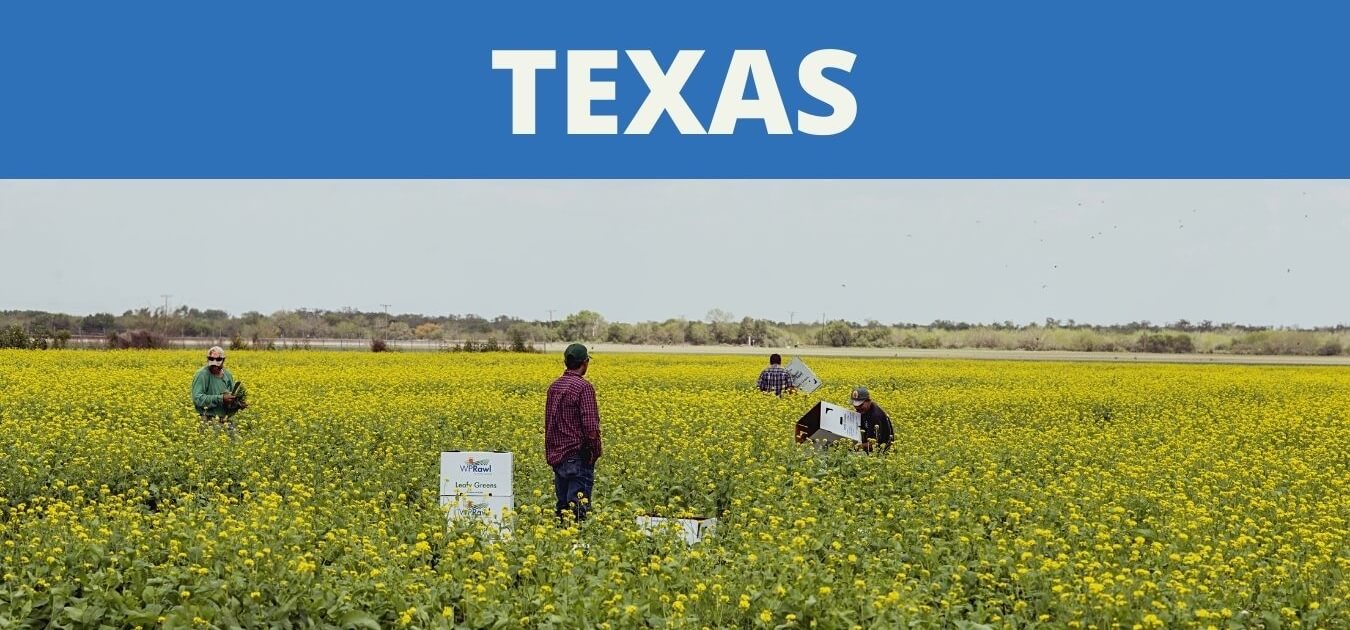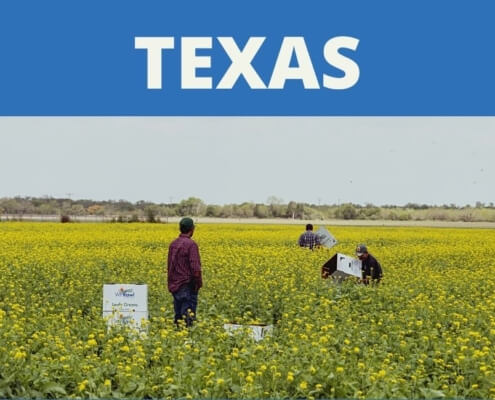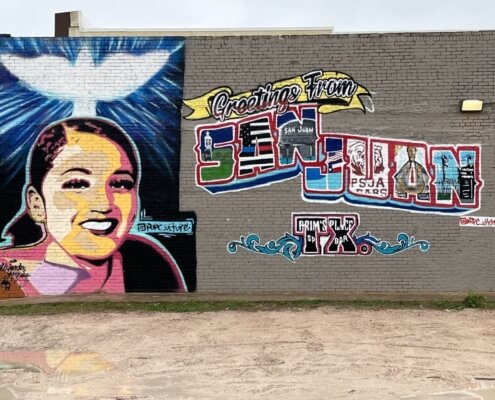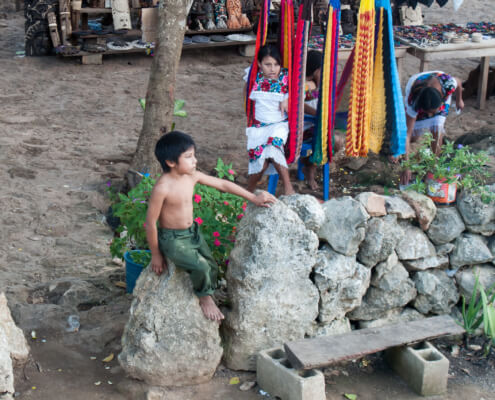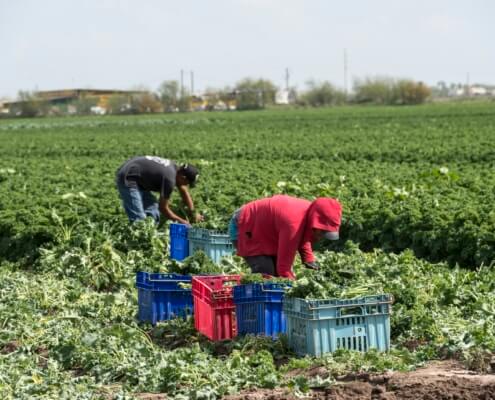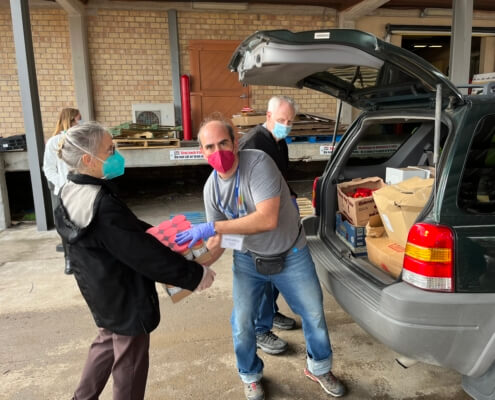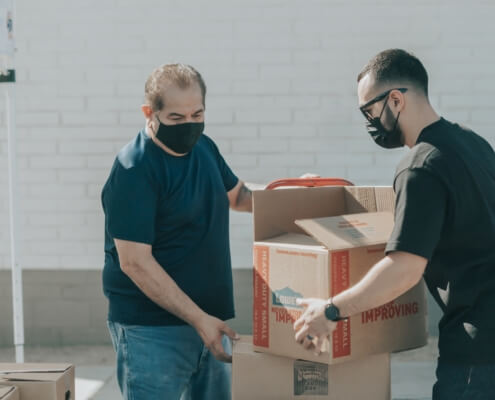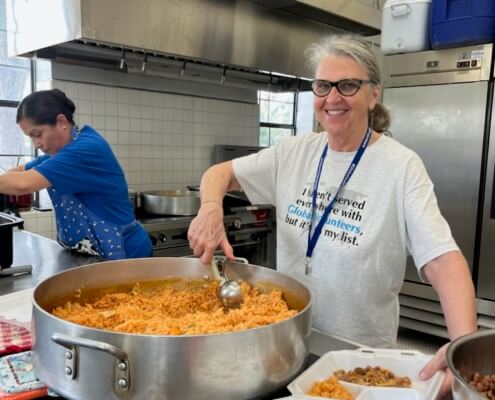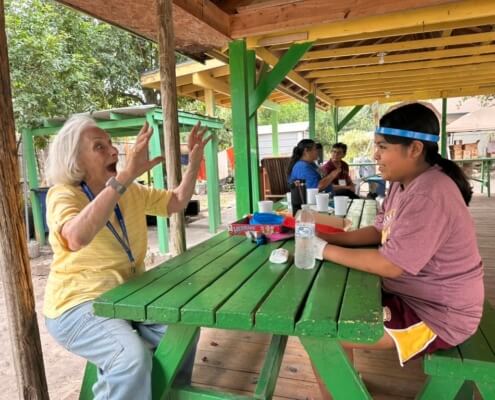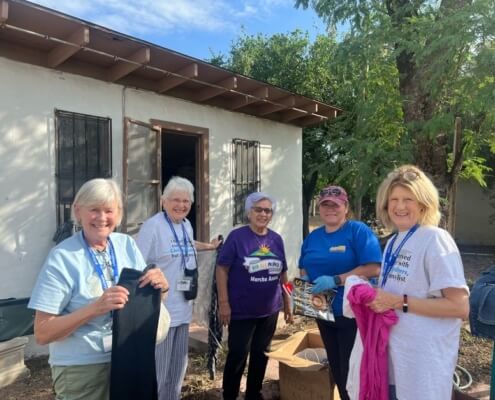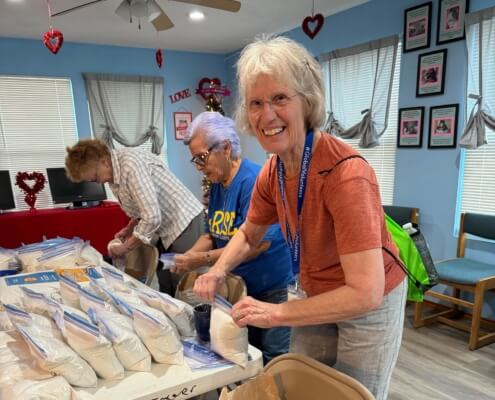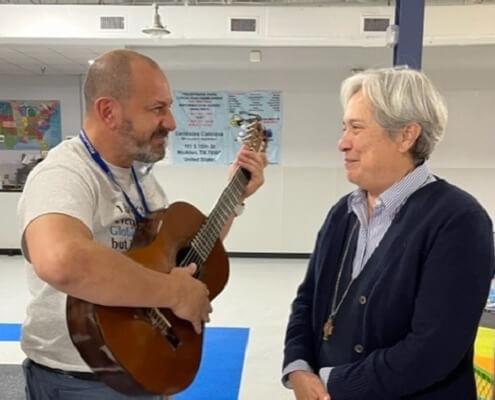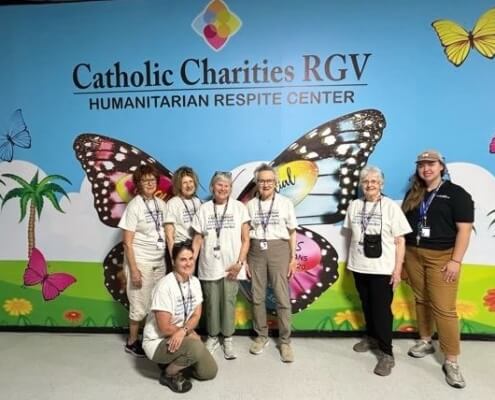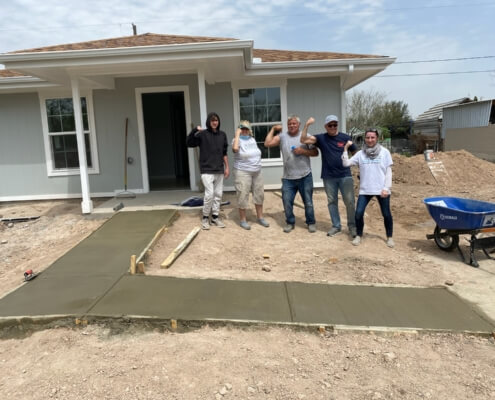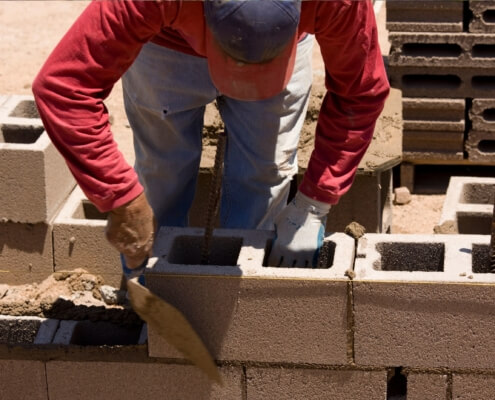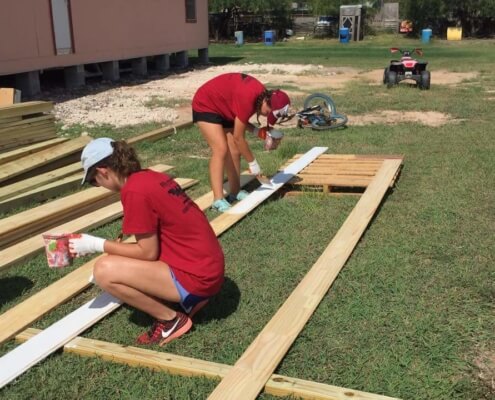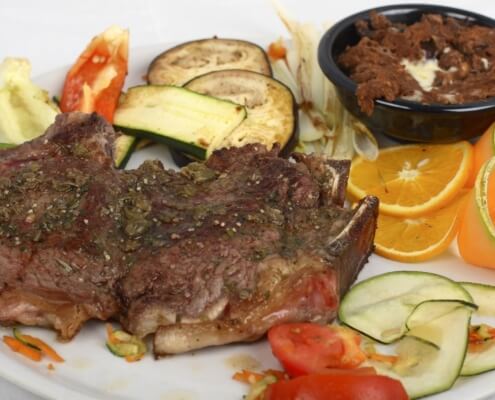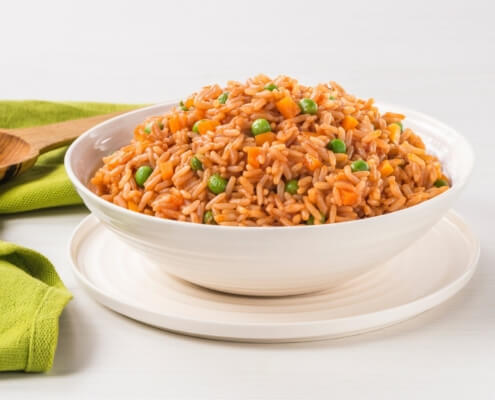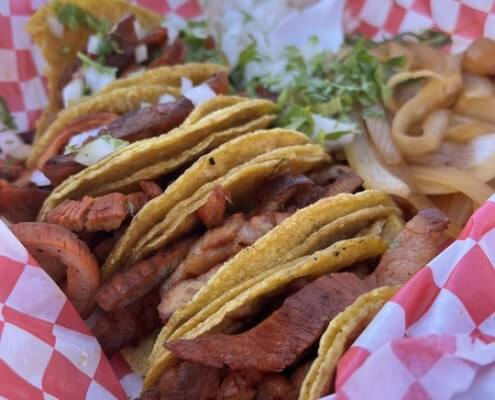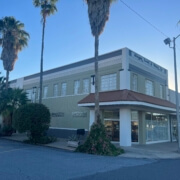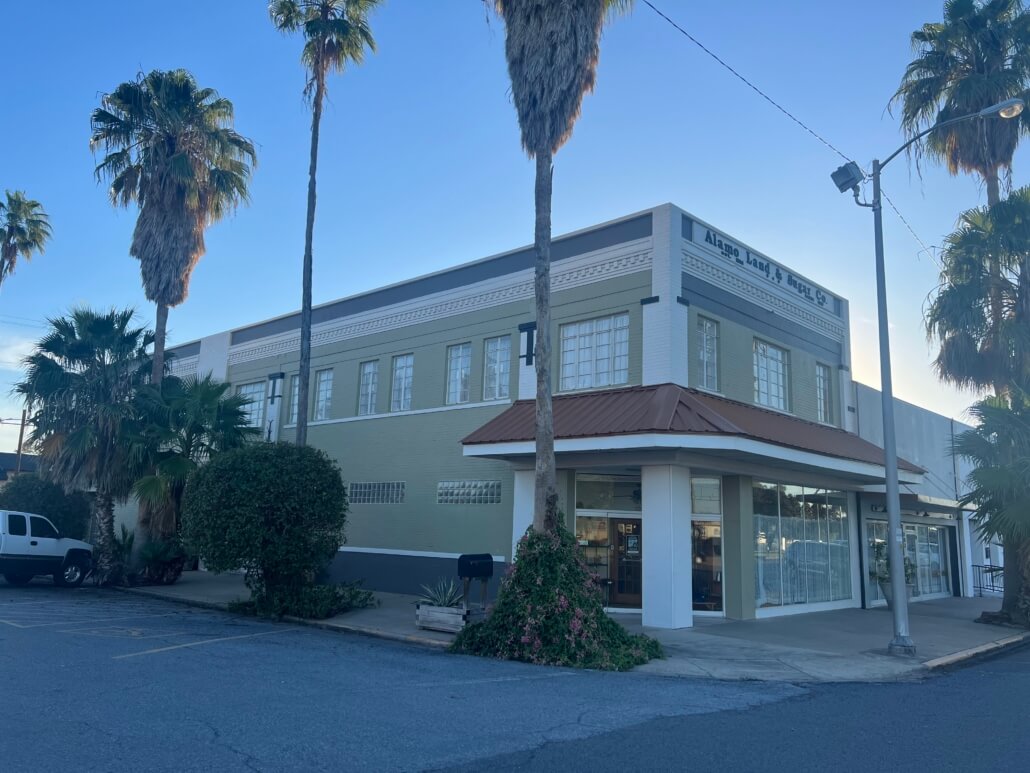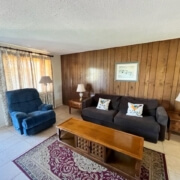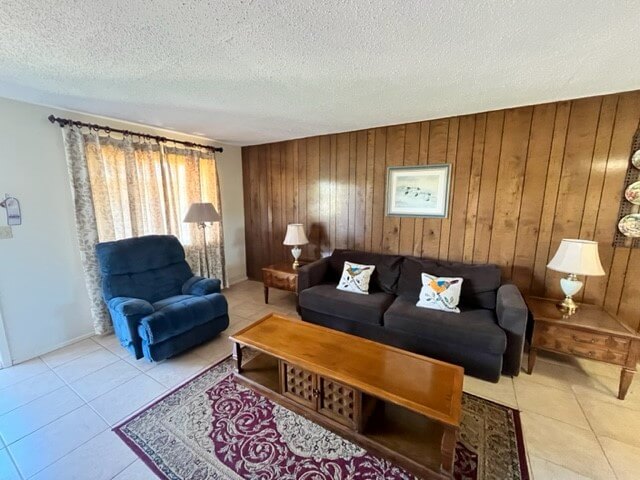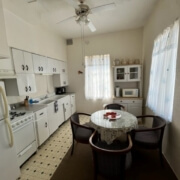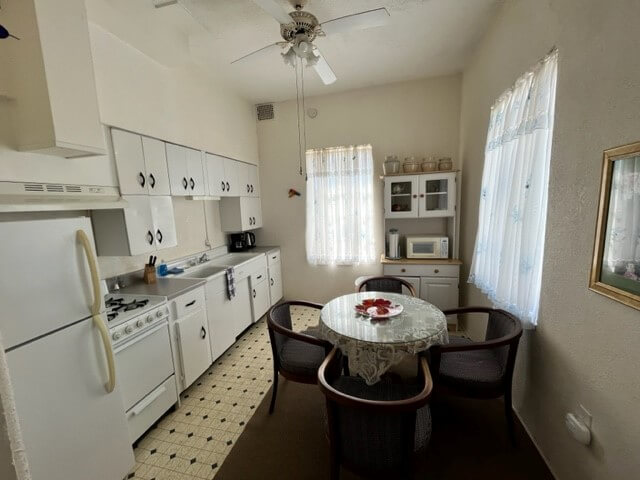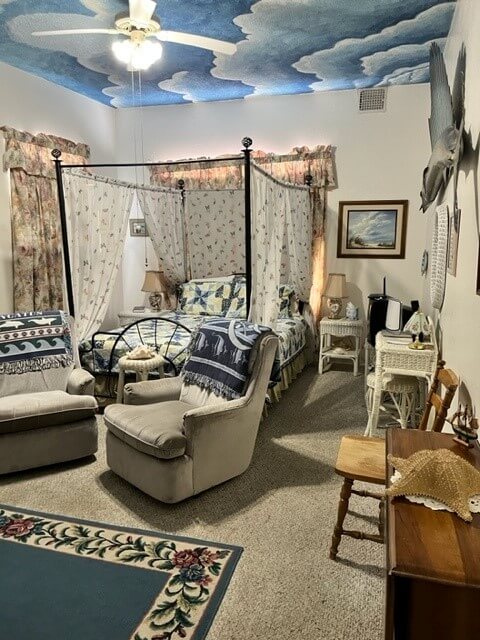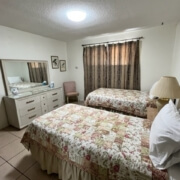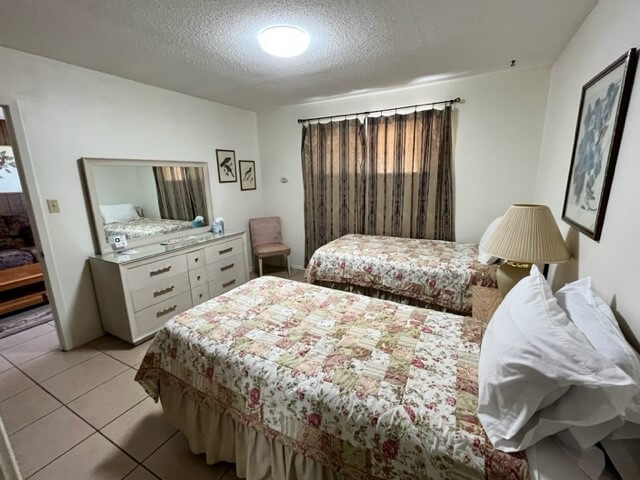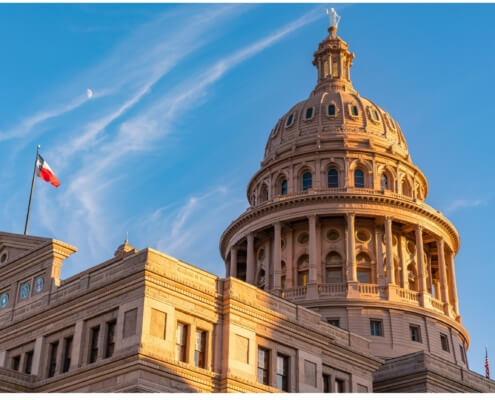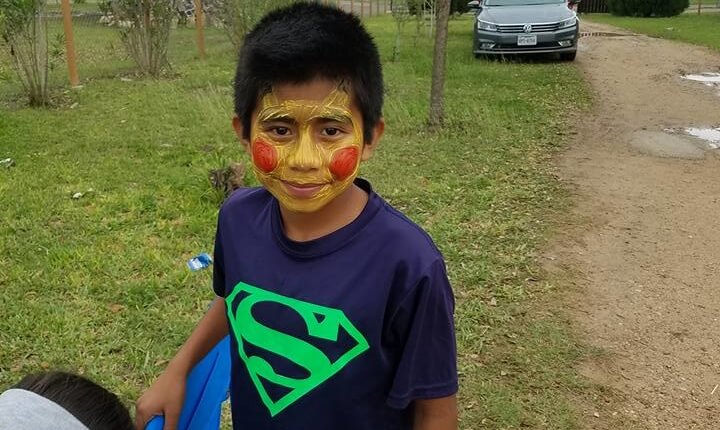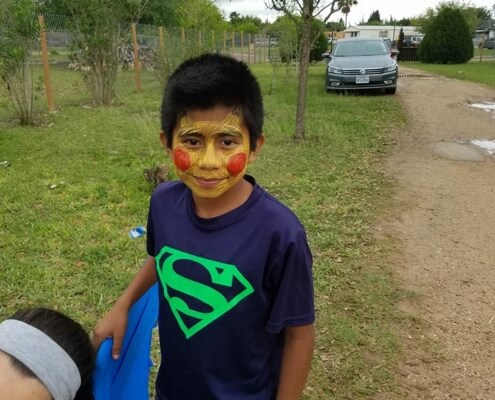Serving in San Juan, Texas
Experience daily life along the US-Mexico border.
The Rio Grande Valley often looms large in today’s news. But beyond the headlines and politics lies vibrant communities requesting your help. The families we assist struggle with the basic necessities of life. You can lend your hands and spirit to projects improving conditions through the good offices of an exemplary program founded to assist migrant farm workers. In just one week, you can make a positive difference, form bonds with the people of San Juan, and learn firsthand about border issues from the local people in this multicultural area.
Community Partner & Work Projects
Our host and community partner is Proyecto Azteca, a non-profit self-help construction company that serves low-income families in colonias (unincorporated, low-income neighborhoods, often with few city services) in predominantly rural areas of Hidalgo County, Texas. Established in 1991, the United Farmworkers of America, Texas Rural Legal Aid, and the Texas Low Income Housing Information Services came together to respond to the housing crisis in Texas’ Rio Grande Valley’s colonias and developed Proyecto Azteca. In the first year, Proyecto Azteca organized self-help construction with just four families. Today, Proyecto Azteca is a nationally recognized, community-directed, self-help housing organization that has financed and trained close to 1,000 families in the construction and first-time ownership of their own homes in over 150 colonias and rural areas. Proyecto Azteca is also part of a large coalition of community organizations working to improve the lives of area residents in the areas of housing, education and health.
Community work projects in and around San Juan include serving along side local volunteers at a food bank, repairing homes of low and very low-income families, working alongside a local nonprofit to provide community development and education, and providing assistance to the local homeless population at a Respite Center.
Food Bank
The Food Bank of the Rio Grande Valley serves over 75,000 area residents each week. Volunteers are needed to support the critical mission of these local institutions by sorting, boxing, and distributing fresh produce, dry goods, and frozen foods and serving meals to children, families and seniors.
Community Development and Education
ARISE (A Resource In Serving Equality) is a community development organization that focuses on improving the lives of people in low-income communities in Southern Texas. Alongside local people, volunteers can expect to help provide community education, assist with sorting and organizing donations, and helping with community events and outreach.
Humanitarian Respite Center
Catholic Charities of the Rio Grande Valley provides assistance and support to the poor and most vulnerable to help them regain hope and dignity. They serve the local homeless population. Volunteers work with local staff preparing, cooking, and serving hot meals twice a day to approximately 125 people.
Home Repair or Construction
Proyecto Azteca serves low-income residents through the repair and construction of single-family homes. Volunteer assignments depend on time of year, available financial resources, and the volunteer’s skill level. Not every service program can engage volunteers on home repair or construction, but when needed, skilled volunteers work with local people repairing homes, painting, siding, tiling, preparing sites, landscaping, building disability ramps, and upgrading bathrooms to be disability accessible. Families who qualify for a new home are required to work on their own homes. Unfortunately, some families who are either disabled, elderly, or both cannot fulfill the 550 “sweat equity” hour requirement. That is where volunteers make a huge difference. The hours volunteers put in are banked and used to help elderly and disabled families meet their sweat equity requirement. This project may not be available in the summer months.
Service Program Logistics
All programs are led by an experienced people and program team leader. In cooperation with the community leaders, your team leader facilitates your team’s orientation, assists you in becoming fully engaged in the community work project, and manages all service program-related logistical issues.
Meals
Self-serve breakfast is included at the lodging and typically consists of cereal, toast, yogurt, and fruit along with a selection of coffee and tea. Bagged lunches of sandwiches, chips, and fruit are pre-packed by volunteers in the Inn’s mini-commercial kitchen and brought to work sites. Evening meals will be a combination of traditional specialties prepared by a local cook and a couple of meals at local restaurants. Specialties are typical South Texas cuisine, heavily influenced by the large Hispanic population in the area. Vegetarian diets can be accommodated. Vegan and other restrictive diets cannot be specifically accommodated. Though some options may meet the dietary needs of those with vegan or other restrictive diets, it is recommended that these volunteers bring or plan to purchase some food of their own.
Lodging
Standard lodging for this program is in the charming and comfortable Alamo Inn B&B. Specializing in birding tours, this accommodation provides an oasis for both naturalists and our volunteers alike. Standard program lodging includes a double occupancy room with a roommate. A limited number of single rooms are available for an extra $200 fee for the week.
All guest rooms include a full bathroom, mini-fridge, microwave, toaster, coffee maker, and access to free Wi-Fi. Some rooms include a separate living room area and/or full kitchen. Family rooms for families or groups of 3-5 volunteers may be available upon request.
Transportation
All onsite transportation is included in your service program contribution. You will meet your team leader and other team members at the McAllen airport and be driven in a Global Volunteers van to your lodging, about 15 minutes away. You will return to the airport on the final day of your program. Transportation to work sites varies from about 5 to 30 minutes by passenger van. Note: Transportation for free-time activities is not included.
Program Mobility:
Our program in Texas requires volunteers to be mobile for the following reasons:
- Volunteers in Texas are transported in a passenger van. Volunteers must be able to climb in and out of passenger vans unassisted.
- Volunteers must be able to walk at least 0.5 miles on paved surfaces, as some of the rooms at the hotel are a distance from the main lobby building where breakfast and dinner are eaten. This space between the lobby building and some of the rooms has low lighting at night, so volunteers should be comfortable with navigating paved sidewalks and curbs with minimal lighting.
- At work projects as well as the hotel, climbing one flight of stairs may be required. Volunteers must be able to climb at least one flight of stairs.
Free Time Activities
Global Volunteers arranges for a visit to the border and one or more lectures/conversations about border issues presented by local knowledgeable professionals. There is no charge for these. You’ll also have ample free time in the evenings and on the weekends before and after the program to enjoy area cultural and natural attractions. All these free-time activities are your responsibility. Activities include visiting the nearby Santa Ana Wildlife Refuge, home or host to over 400 species of birds, or the Quinta Mazatlan World Birding Center, an historic Spanish Revival adobe hacienda surrounded by lush tropical landscaping and native woodland. Five minutes from our lodging is the Basilica of Our Lady of San Juan del Valle, one of Texas’ most popular pilgrimage spots. Down the road is the McAllen Heritage Center, a small museum focusing on the history of the area and the International Museum of Art and Science.
Service Program Contribution
Global Volunteer’s service program contribution covers all lodging, three meals a day, in-country team transportation, emergency medical evacuation insurance, all preparatory materials, onsite orientation, a full-time team leader, and administration costs. The service program fee is $1,427 for one week. A limited number of single rooms are available for an extra $200 fee for the week.
Please ask your volunteer coordinator about referral credits as well as discounts for students, companions, groups, and alumni volunteers. We encourage you to use Global Volunteers’ online fundraising tool where you can create a personalized webpage to request partially tax-deductible donations from family and friends to help cover your service program contribution. Airfare and free-time activity expenses are your responsibility. The service program contribution and airfare are tax-deductible for U.S. taxpayers.
Call one of our Volunteer Coordinators at 800-487-1074 to register or reserve your spot online.
You CAN make a world of difference!
